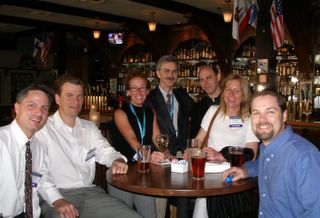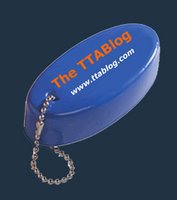The Board sustained this Section 2(d) opposition to registration of the mark SAGEFORTH for "providing information in the field of psychological counseling, assessments, diagnosis, and treatment," in view of the registered mark SAGE CENTRAL for "providing health and medical information about postpartum depression and treatment." The only somewhat interesting part of the decision concerned the Board's dismissal (without prejudice) of applicant's counterclaim to restrict four additional pleaded registrations that the Board did not include in its Section 2(d) analysis. Sage Therapeutics, Inc. v. SageForth Psychological Services, LLC,, Opposition No. 91270181 (April 12, 2024) [precedential] (Opinion by Judge Mark A. Thurmon).

Likelihood of Confusion: The Board focused on opposer's mark SAGE CENTRAL, mechanically finding applicant's mark SAGEFORTH to be similar in appearance, sound, meaning, and commercial impression. "The common 'sage' element of the marks anchors them in a way to the same theme and creates a risk that consumers will mistakenly assume connections between the services provided under the marks."
As to the services, applicant's broad identification, with no limitations on the type of mental health issues covered, "include[s] providing information relating to any type of mental health condition that falls within the scope of psychological care." The involved services are therefore legally identical, and so the overlapping services are presumed to be offered through the same trade channels to the same classes of consumers.
Evidence of third-party registration and use of the word "sage" in connection with the provision of information regarding mental health led the Board to find that "'sage' is somewhat conceptually weak as a source-identifier within the mental health field." The Board concluded that SAGE CENTRAL "is less conceptually strong than an arbitrary mark. but suggestive marks are inherently distinctive and entitled to protection."
When we consider all the relevant DuPont factors, and assign appropriate weights to the factors, Opposer has proven its Section 2(d) claim by a preponderance of the evidence.
Counterclaim for Restriction: Applicant's counterclaim targeted four registrations for the mark SAGE THEREAPEUTICS in various forms, all for a "House mark for pharmaceutical preparations." Applicant sought to restrict those registrations to "a house mark for pharmaceutical preparations that treat post-partum depression."
In order to prevail on its Section 18 counterclaim for restriction, applicant would have to prove two elements: (1) the proposed amendment avoids a likelihood of confusion finding; and (2) the proposed amendment is supported by the evidence. Wellcome Found. Ltd. v. Merck & Co., 46 USPQ2d 1478, 1479 (TTAB 1998) (citing Eurostar v. “Euro-Star” Reitmoden GmbH & Co. KG, 34 USPQ2d 1266, 1271 (TTAB 1994)); TBMP § 309.03(d).
In Eurostar, the Board held that "in a case involving likelihood of confusion, we should not exercise our authority under Section 18 to permit an action to restrict an application or registration where such a restriction is divorced from the question of likelihood of confusion.” Eurostar, 34 USPQ2d at 1270. Here, the Board concluded that the counterclaim "cannot avoid the likelihood of confusion finding we made to sustain the opposition, and we therefore see no purpose in addressing it now."
The Board deemed the counterclaim to be moot, since the four targeted registrations were not included in the Section 2(d) analysis. Dismissing the Section 18 counterclaim but without prejudice, the reasoned:
[I]t remains possible that Opposer here might assert the same four registrations in an infringement proceeding challenging Applicant’s use of its mark. In that scenario, we see no reason why Applicant should not retain the right to bring a counterclaim against any of the registrations asserted against it, which could include the four house mark registrations it challenged through its counterclaim in this proceeding.
The Board considered its ruling to be a "modest extension" of its Section 18 precedent:
We thus hold that a Section 18 counterclaim should be denied without prejudice if the Board sustains a Section 2(d) opposition based on registrations that are not challenged by the counterclaim. This modest extension of the Eurostar holdings is consistent with the policies and concerns behind that decision. Section 18 should not be used to force the Board into conducting likelihood of confusion analyses that cannot have a real impact on the registrability of a mark.
Read comments and post your comment here.
TTABlogger comment: Do you agree that the marks look alike? sound alike? have the same meaning? BTW, if the counterclaim is moot, is the Section 18 discussion mere dictum?
Text Copyright John L. Welch 2024.


























